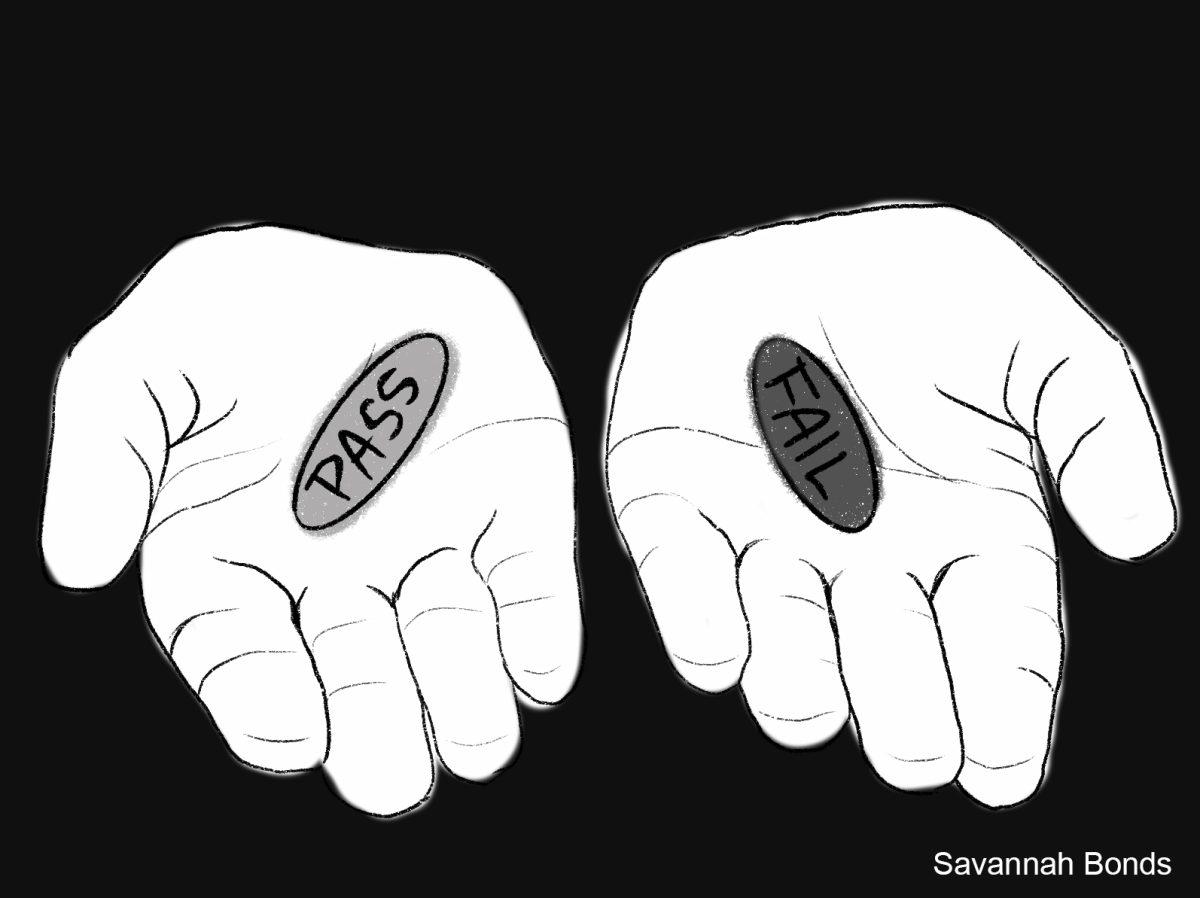On Sept. 2, Regina Hyatt, Mississippi State University’s vice president of student affairs, sent an email to the student body where she noted, despite the student body’s indicated “strong preference” for a face-to-face model, there has been a drop in attendance for face-to-face model classes. Hyatt also mentioned this coincides with lower rates of assignment and exam completion in classes in general.
I would be willing to hear the argument on how this is the fault of the student, but I think that would be a diminutive conclusion. Yes, the ultimate issue is students not doing work, but why the sudden change? These are largely the same students who have been at Mississippi State University for multiple years, and a sudden downward trend in attendance and assignment completion has been brought on by a sudden lack of routine and shift in learning model. It is for this reason I submit grades for this semester should return to the “pass or fail” model and remain this way for every semester going forward until our return to normalcy.
The current freshman at MSU would have been using the standard learning model for 12 years up until this point and the current senior, 15. To expect the student to be able to suddenly handle a completely new model of learning, via asynchronous lectures, WebEx calls and fluid deadlines, is an egregious request on behalf of the faculty. While most students have lived their whole lives in the digital age and may be equipped to understand the technology necessary to complete these assignments, they have faced no precedent of such a lack of routine.
As reported by Allen Barton, Gene Brody, Tianyi Yu, Steven Kogan, Edith Chen and Katherine Ehrlich with the Journal of Adolescent Help, studies have been conducted that prove the importance of routine for young adults. The presence of a consistent routine helps regulate the mental, physical and emotional health of the individual.
When a 20-something-year-old has nowhere to be at 10 a.m. and no lecture to sit in on where their attendance is required except once a week for a socially-distanced lab, why would they create a consistent sleep schedule? When a 20-something-year-old has all of their assignments due on Friday or Sunday at midnight, why would they watch their pre-recorded lectures on a Tuesday at 11:30 a.m.?
Another issue contributing to the decline of attendance and assignment completion is the inability of the staff to hold students accountable during this era of COVID-19, at no fault of their own. When the classwork, essays and homework students are doing is submitted via canvas to a professor they have only ever seen in prerecorded lectures, there is a disconnect. It is school in hyperreality, and failing to turn in assignments has the same weight as failing to practice guitar after watching a YouTube tutorial. It seems inconsequential.
The structure students have had since kindergarten is suddenly unsafe to use, and if the faculty is going to ask old dogs to learn new tricks, they need to temper grace in return. Lots of students are preparing to take their Medical College Admission Tests and graduate school entry exams. To suddenly pull the rug out from under them, completely change how they have done their work until this point and still expect the same performance is not only reckless but also borderline cruel.
It is the future of the students being gambled here — a future which will take place in a time without COVID-19 regulations. A failing grade currently is not about failing to master the material of the class; it is failing to reorient oneself to the new system. The skills to handle remote learning may be useful, but will, in a matter of months, be largely obsolete, and for prospective graduate students to be penalized for this is shameful.
According to Doug Lederman with Inside Higher Ed, the National Institute of Learning Outcomes Assessment said in the in-depth conclusion of their August report institutions need to constantly offer grace and understanding because “we are in a pandemic. Still.”
I am personally very tired of hearing how unprecedented these times are with no effort to adjust expectations accordingly on behalf of the grading policies of the school.
Until MSU returns to the classical model of learning, students should be allowed the “pass or fail” grading option and GPAs should remain in the hands of the students, for their own sakes and for the sake of their futures.








